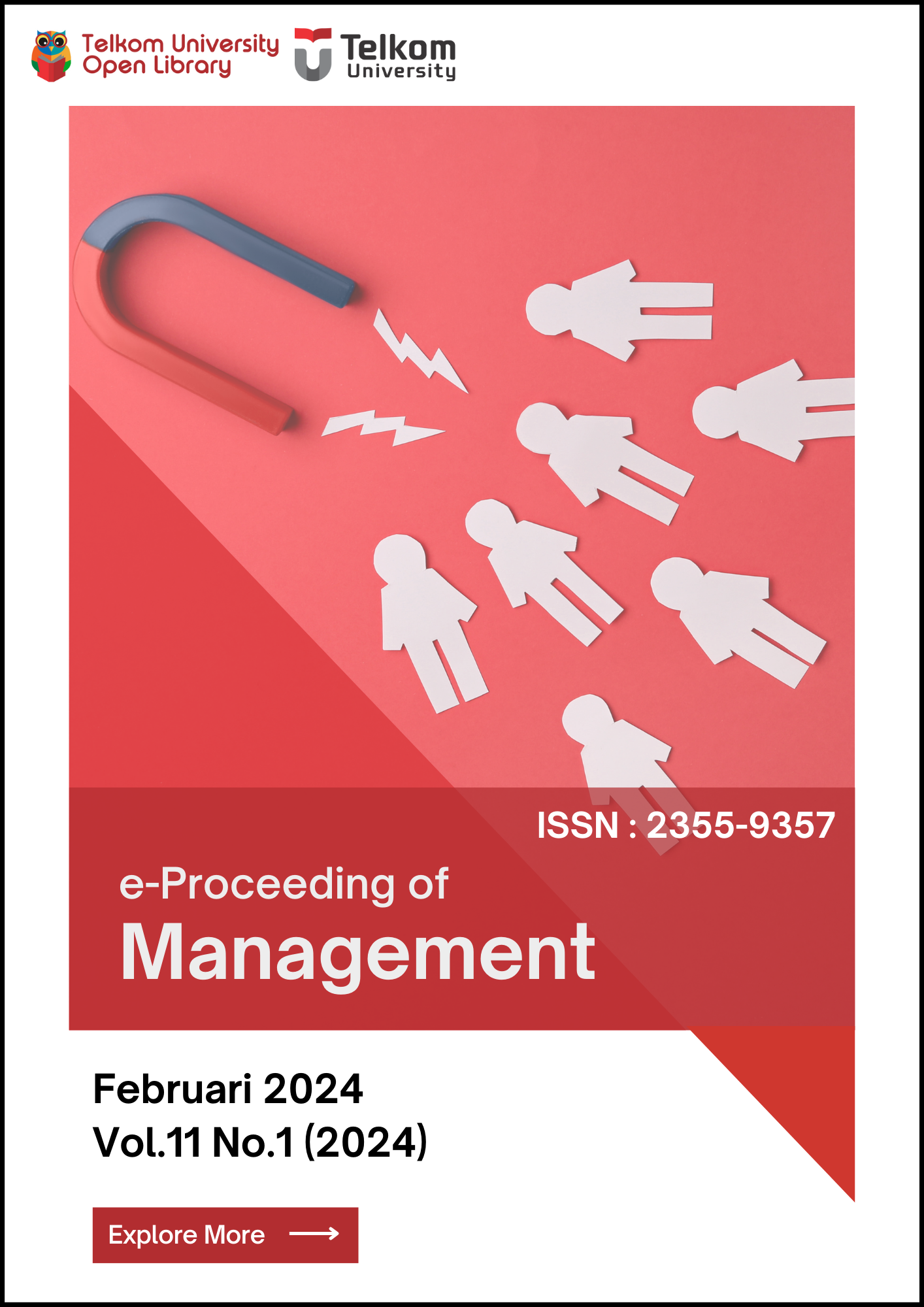The Effect Of Customer Experience On Lazada’s Customer Loyalty Through Trust As Intervening Variable
Abstract
Lazada is one of the international e-commerce companies that provides a convenient shopping experience. The purpose of this study is to analyze the effect of customer experience on the loyalty of Lazada users in Indonesia, with trust as the mediator. This study uses quantitative descriptive methods and path analysis, with a focus on the relationship between customer experience and trust among Lazada users. A sample of 200 respondents was included in the study, and the sample method was purposive nonprobability. The significance value of the customer experience on trust was 0.000 < 0.05. Therefore, the significance value of the influence on loyalty was 0.001 = 0.05. The sig value of the relation between customer experience and loyalty was 0.000, thus the conclusion of the study is positive and significant. Lazada customer trust is an indirect influence on the loyalty of customers. Therefore, trust is an intervening variable that influences the relationship between experience and loyalty. Keywords-customer experience,trust,customer loyaltyReferences
Chiguvi, D., & Ndoma, J. T. (2018). The Effects of Shortage of Accommodation on Students' Performance in
Private Tertiary Institutions in Bot swana. Journal of Economi cs and Sustainable Development, 9(4),
-104.
Godovykh, M., & Tasci, A. D. (2020). Customer experience in tourism: A review of definitions, components, and
measurements. Tourism Management Perspectives.
Goyal, S., Sergi, B. S., & Esposito, M. (2019). Literature review of emerging trends and future directions of ecommerce in global business landscape. World Review of Entrepreneurship, Management and
Sustainable Development, 15(1), 226-255.
Hegner-Kakar, A. K., Richter, N. F., & Ringle, C. M. (2018). The customer loyalty cascade and its impact on
profitability in financial services. The customer loyalty cascade and its impact on profitability in
financial services, 53-75.
Keiningham, T., Aksoy, L., Bruce, H. L., Cadet, F., Clennell, N., Hodgkinson, I. R., & Kearney, T. (2020).
Customer experience driven business model innovation. Journal of Business Research, 116, 431-440.
Kotler, P., & Amstrong, G. (2016). Fundamentals of Marketing. Dialetyka.
Kotler, P., & Keller, K. (2017). Marketing Management. New York: Pearson.
Kotler. (2017). Moving From Traditional to Digital. John Wiley dan Sons, Inc.
Lu, B., Fan, W., & Zhou, M. (2016). Social presence, trust, and social commerce purchase intention: An empirical
research. Computers in Human Behavior, 56, 225-237.
McLean, G., & Wilson, A. (2016). Evolving the online customer experience ... is there a role for online customer
support? Computers in Human Behavior, 602- 610.
Rachbini, W., Hatta, I. H., & Evi, T. (2019). Determinants of trust and customer loyalty on c2c e-marketplace in
Indonesia. International Journal of Civil Engineering and Technology, 10(3), 119-129.
Tiago, O., Alhinho, M., Rita, P., & Dhillon, G. (2017). Modelling and testing consumer trust dimensions in ecommerce. Computers in Human Behavior, 71, 153-164.
Toufaily, E., & Pons, F. (2017). Impact of customers' assessment of website attributes on e-relationship in the
securities brokerage industry: A multichannel perspective. Journal of Retailing and Consumer Services,
, 58-69.






